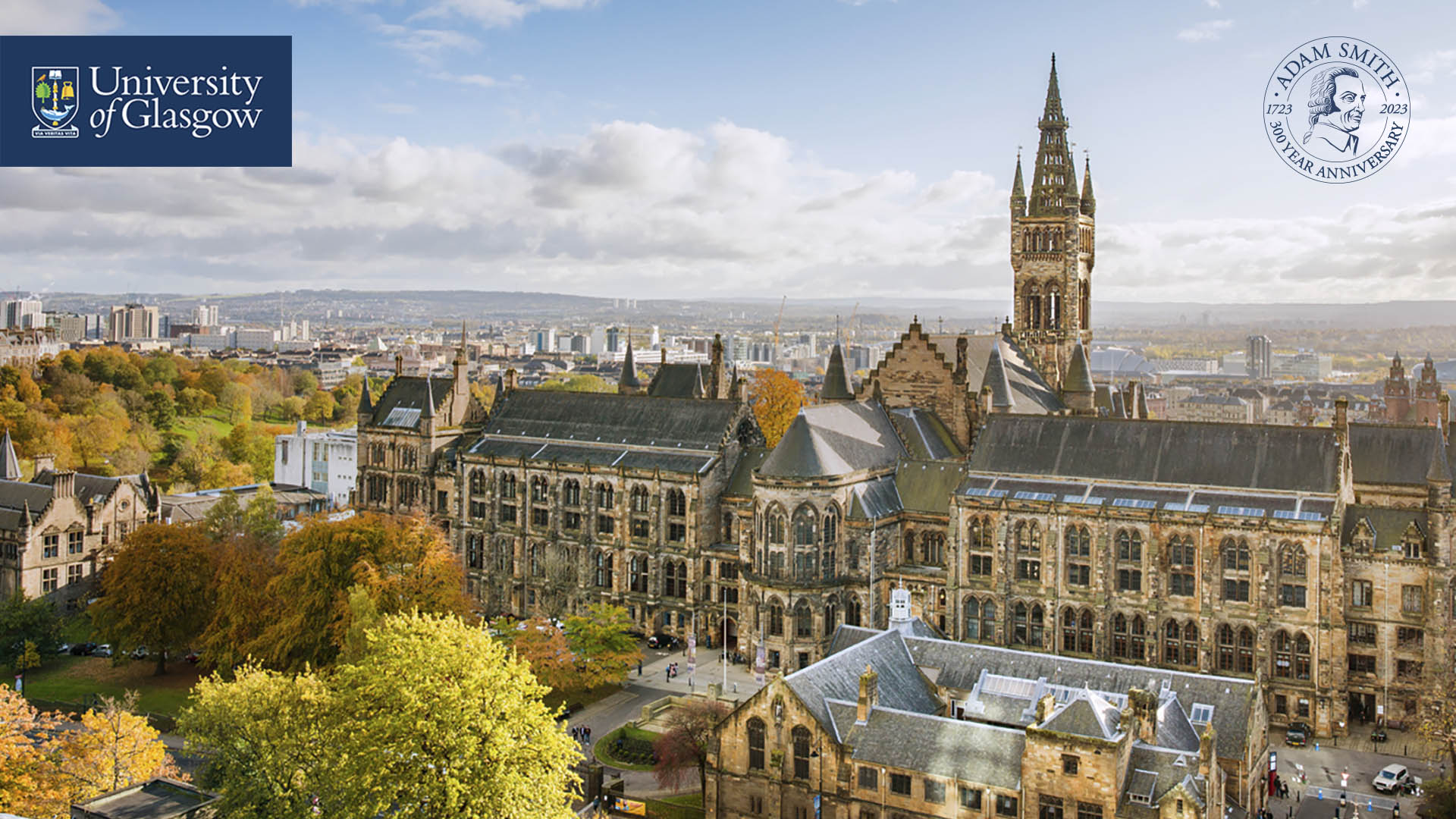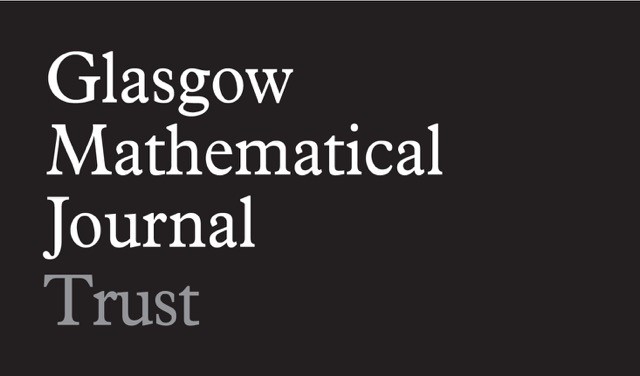North British Geometric Group Theory Seminar
University of Glasgow, 21 April 2023

Speakers
Macarena ArenasUniversity of Cambridge |
Michael MageeDurham University |
Francesco MatucciUniversity of Milano–Bicocca |
Timetable
All talks will be held in the Mathematics and Statistics Building (map), room 116.
| 1.00 – 2.00 pm: Macarena Arenas, On the structure of quotients of cubulated groups |
| 2.15 – 3.15 pm: Michael Magee, Finite dimensional unitary representations |
| 3.15 – 3.45 pm: Tea |
| 3.45 – 4.45 pm: Francesco Matucci, Finite germ extensions |
| 5.30 pm: Dinner at Ashoka. |
Please email Rachael Boyd by 18 April if you plan to attend dinner. The dinner will be at Ashoka, which is very close to Hillhead subway station—from here you can take subway to the train station. We expect to be able to partially cover the cost of dinner for postgraduate students and early career researchers.
Support
There is some travel funding for attendees, and PhD students and postdocs will be prioritised. We’d appreciate it if those interested in travel funding contact us before the meeting, so that we can allocate it accordingly.Abstracts
On the structure of quotients of cubulated groups
Macarena Arenas, University of Cambridge
This talk will be an invitation to the study of cubulated groups and their quotients via the tools of cubical small cancellation theory. Non-positively curved cube complexes are a class of cell-complexes whose geometry and combinatorial structure is closely related to the structure of the groups that act nicely on their universal covers. I will tell you a bit about what we know and don’t know about these groups and spaces, and about the tools we have to study their quotients. I will explain some applications of the study of these quotients to producing a large variety of examples of large-dimensional hyperbolic (and non-hyperbolic) groups.
Finite dimensional unitary representations
Michael Magee, Durham University
The talk is about to what extent finite dimensional unitary representations of infinite groups (e.g. free groups) can approximate the regular representation, in senses to be made precise in the talk. In some cases, ‘random’ finite dimensional representations are known to have good approximation properties. I'll say what we know in the case of free groups, surface groups, and limit groups, and describe future directions of the research. Based in part on joint work with Lars Louder.
Finite germ extensions
Francesco Matucci, University of Milano–Bicocca
We introduce a family of groups of homeomorphisms of a topological space obtained from a group of piecewise linear homeomorphisms by adding finitely many singularities and we prove results about their simplicity, abelianizations and finiteness properties. This family arose naturally in the process of solving a Kourovka notebook question by Bridson and de la Harpe asking whether there exists a finitely presented group containing the additive group \(\mathbb{Q}\) of rational numbers. Among the examples we construct, we describe two groups \(T\!\mathcal{A}\) and \(V\!\mathcal{A}\) that are simple, two-generated, finitely presented and contain, respectively, all countable torsion-free abelian groups and all countable abelian groups, explicitly realizing the Boone–Higman embedding theorem. Moreover, we show that they have type \(\mathrm{F}_{\!\infty}\). We also discuss how our results can be applied to other related groups, such as some Nekrashevych groups, a class of groups which are generated by Thompson groups \(V_{n,r}\) and suitable self-similar groups. This is joint work with Jim Belk and James Hyde.
Seminar Information
The North British Geometric Group Theory Seminar is a collaborative seminar that has been running since 2003. The seminar involves geometric group theorists from Heriot–Watt, Glasgow, Newcastle, Durham, York, Leeds, Manchester, Nottingham, St Andrews, and Leicester, and meets three times a year.
We are very grateful for financial support from the London Mathematical Society and the Glasgow Mathematical Journal Learning and Research Support Fund.

